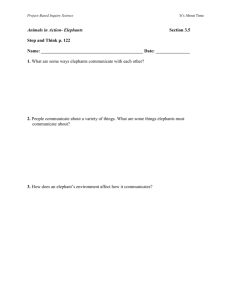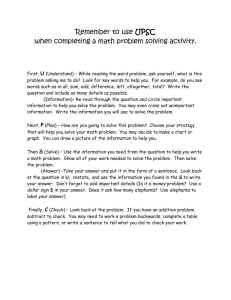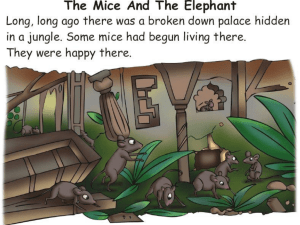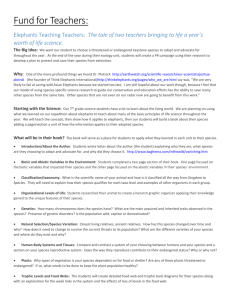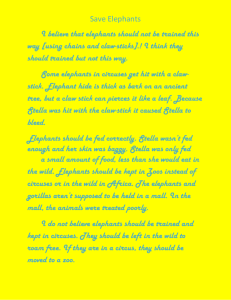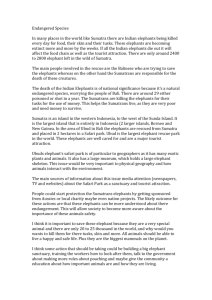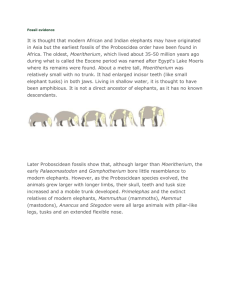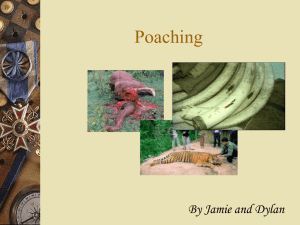File - CSUF Pre
advertisement
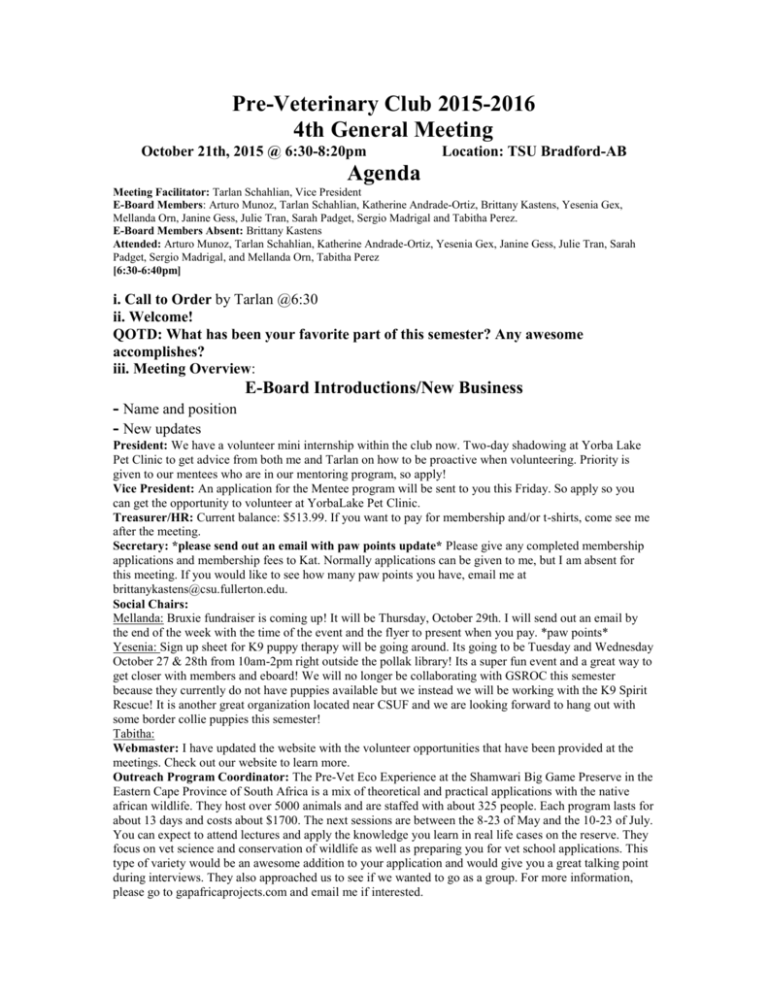
Pre-Veterinary Club 2015-2016 4th General Meeting October 21th, 2015 @ 6:30-8:20pm Location: TSU Bradford-AB Agenda Meeting Facilitator: Tarlan Schahlian, Vice President E-Board Members: Arturo Munoz, Tarlan Schahlian, Katherine Andrade-Ortiz, Brittany Kastens, Yesenia Gex, Mellanda Orn, Janine Gess, Julie Tran, Sarah Padget, Sergio Madrigal and Tabitha Perez. E-Board Members Absent: Brittany Kastens Attended: Arturo Munoz, Tarlan Schahlian, Katherine Andrade-Ortiz, Yesenia Gex, Janine Gess, Julie Tran, Sarah Padget, Sergio Madrigal, and Mellanda Orn, Tabitha Perez [6:30-6:40pm] i. Call to Order by Tarlan @6:30 ii. Welcome! QOTD: What has been your favorite part of this semester? Any awesome accomplishes? iii. Meeting Overview: E-Board Introductions/New Business - Name and position - New updates President: We have a volunteer mini internship within the club now. Two-day shadowing at Yorba Lake Pet Clinic to get advice from both me and Tarlan on how to be proactive when volunteering. Priority is given to our mentees who are in our mentoring program, so apply! Vice President: An application for the Mentee program will be sent to you this Friday. So apply so you can get the opportunity to volunteer at YorbaLake Pet Clinic. Treasurer/HR: Current balance: $513.99. If you want to pay for membership and/or t-shirts, come see me after the meeting. Secretary: *please send out an email with paw points update* Please give any completed membership applications and membership fees to Kat. Normally applications can be given to me, but I am absent for this meeting. If you would like to see how many paw points you have, email me at brittanykastens@csu.fullerton.edu. Social Chairs: Mellanda: Bruxie fundraiser is coming up! It will be Thursday, October 29th. I will send out an email by the end of the week with the time of the event and the flyer to present when you pay. *paw points* Yesenia: Sign up sheet for K9 puppy therapy will be going around. Its going to be Tuesday and Wednesday October 27 & 28th from 10am-2pm right outside the pollak library! Its a super fun event and a great way to get closer with members and eboard! We will no longer be collaborating with GSROC this semester because they currently do not have puppies available but we instead we will be working with the K9 Spirit Rescue! It is another great organization located near CSUF and we are looking forward to hang out with some border collie puppies this semester! Tabitha: Webmaster: I have updated the website with the volunteer opportunities that have been provided at the meetings. Check out our website to learn more. Outreach Program Coordinator: The Pre-Vet Eco Experience at the Shamwari Big Game Preserve in the Eastern Cape Province of South Africa is a mix of theoretical and practical applications with the native african wildlife. They host over 5000 animals and are staffed with about 325 people. Each program lasts for about 13 days and costs about $1700. The next sessions are between the 8-23 of May and the 10-23 of July. You can expect to attend lectures and apply the knowledge you learn in real life cases on the reserve. They focus on vet science and conservation of wildlife as well as preparing you for vet school applications. This type of variety would be an awesome addition to your application and would give you a great talking point during interviews. They also approached us to see if we wanted to go as a group. For more information, please go to gapafricaprojects.com and email me if interested. ICC Rep.: If you attended the UC Davis Health Conference please give me your post travel packet to turn it in ASAP. ICC will be having another fundraiser on Nov. 10 at yogurtland. Meeting Chair: Our next meeting is November 4th and our speaker is going to be SFC Manos from the Army. which is a great opportunity to see how Veterinarians can be involved in the military. [6:40-6:47pm] 1. Vet Med 101 by Brittany; presented by Janine and Tarlan - The importance of spaying/neutering your pets - Handout and PowerPoint - Your pet will live a longer, healthier life. - Spaying helps prevent uterine infections and breast cancer. Spaying your pet before her first heat offers the best protection from these diseases. - Neutering males prevents testicular cancer if neutered by 6 months of age. - Helps fight overpopulation. - Your neutered male will be much better behaved. - Your spayed female won’t go into heat. [6:47-7:20pm] 2. DR.ERICA WARD,DVM Dr. Erica Ward graduated in 2013 from Michigan State University for veterinary school. She started working at Elephant Nature Park in Thailand in 2011, during the summers of her vet school years. She was offered a job at the park upon graduation, and she worked with the existing vet at the facility to learn the in’s and out’s of the park’s practices. She has since seen the number of elephants at the park grow from around 30 to the now 65 resident elephants. Elephant Nature Park is home to more than just elephants it also included dogs, cats, cows, pigs, water buffalo, and even horses. Dr. Ward works a 12-hour day and gets 4 days off a month. Her typical days starts around 6am, when she medicates the elephants and then does a health check on 1/3 of the elephants. She works with two other veterinarians who split the remaining 2/3 of the elephants to ensure that all 65 elephants can be seen and thoroughly examined. She then goes to the calves (or baby elephants) and takes their temperatures to help catch any oncoming diseases or illnesses. After that, she does elephant treatments with the trainers present. Upon completion, she moves on to the treatments of the other animals at the park and ends her day giving the nightly doses of medicine to the elephants. There are two types of contact that you can have with an elephant: Protective Contact: Only gives POSITIVE REINFORCEMENT because there is a barrier between the human and the animal, and the trainers to not FORCE a desired behavior. This is better for the elephants. Free Contact: Veterinarians need to have a mahout, or a handler, present at all times when in free contact to prevent any dangerous situations. Elephants are a captive, or wild, species, not a domestic species. At the park where Dr. Ward works, if an elephant is really young when they start interacting with it, the vets and trainers only do positive reinforcement and protective contact with that elephant. If the elephant is older when it comes to them, it is likely that it has been forced to undergo training with free contact. This is where humans deprive the elephants of food and put them in a small enclosure, or a crush. Many die while undergoing this brutal training. All elephants have been through this training in Thailand, and she is working to provide the best life possible to those that are at her sanctuary. She stated that many efforts are going towards eradicating this training procedure, but for now, she is doing her part to provide a stress free environment for the elephants at her park. Some common problems for elephants, especially since many are older (they can live to be 70) -Obesity -Abscess on feet or body -Eye conditions -EEHV (Elephant endotheliotropic herpesviruses): She has seen 5 cases over the last three months. She has been taking their temperatures and doing blood work on the other elephants to ensure that she can catch it early. -Tuberculosis: This is a zoonotic risk because people can get this disease as well. Research suggests that the animals might actually get it from their handlers. -Foot in mouth disease endemic (has killed thousands of cows in the UK) -Colic: Dr. Ward treats for colic about once a month. She usually sees impaction colic, which is caused by not chewing properly. Elephants have 6 sets of teeth that will phase in and out through their whole life, but they only get the 6 sets and then they are toothless. Diet: Need a lot of roughages (grass/bark/leaves) and not a lot of concentrates (or grains. Elephants are vegetarians. They only digest about 40% of what they intake and have hindgut ruminants, like rabbits and horses. In order to get them to drink more water, the trainers and vets add salt to their food. [7:20-7:32pm] 3. Q&A for DR.WARD The best way to hydrate an elephant is to give fluids to them rectally rather than by catheter or through rumen. If you have to give IV fluids in an emergency, you would usually give hypertonic saline in the ear vein. However, the best way to give pain meds is straight into their muscles, as this allows for fast absorption. She has a vet students program: 1 week+ where you would follow her around and learn through observation and up close learning. Go to elephantnaturepark.org for more information. [7:33-8:10pm] 4. Kimberly Conway Kimberly Conway is a second year veterinary student at UC Davis. She graduated from CSUF in 2014. She started at CSUF in 2007 as a theater major, turned health science major, turned biology major, and ended up obtaining both and health science and a biology degree. She worked at a vet clinic for 5 years, where she had started as a receptionist and eventually worked her way into learning more. The more she studied at CSUF, the more her mind changed about what she wanted to do for her future career. She went from wanting to be a vet, to doing wildlife research, to studying epidemiology (or the study of disease outbreaks=her #1 favorite topic), and ended up back at studying vet medicine. Her road to vet school included: 1.Academics: grades aren’t everything. (Recommends taking: immunology, mammalian physiology, and measurement and statistics in Health Science) 2. Research: Dr. Stapp’s lab working in Colorado and on campus. 3. BURST program 4. Dimensions: Journal of scientific articles from CSUF’s own students. 5.GRE: take time to study for it. It is a lot of work. (Recommends: The Princeton Review study books) 6. Application: Letters of Recommendation, personal statement, gre/gpa, vet experience 7. Interview: UCD does Multiple Mini Interviews. She encourages all to be overdressed, and to be yourself. Once in vet school, she is now doing internships, giving tours, getting involved in clubs, and going on clinical rotations. She is a firm believer that no matter what path you take to get to where you want to go, that you can get there if you work hard and never stop pursuing your passions. [8:10-8:24pm] 5. Q&A for Kimberly Conway 6. Closing remarks Our next meeting is on November 4th at 6:30 where we will talk to an army veterinarian. Puppy therapy is next week on Tuesday and Wednesday, and the sign up sheet has been emailed to everyone. iv. Adjourned@8:24
